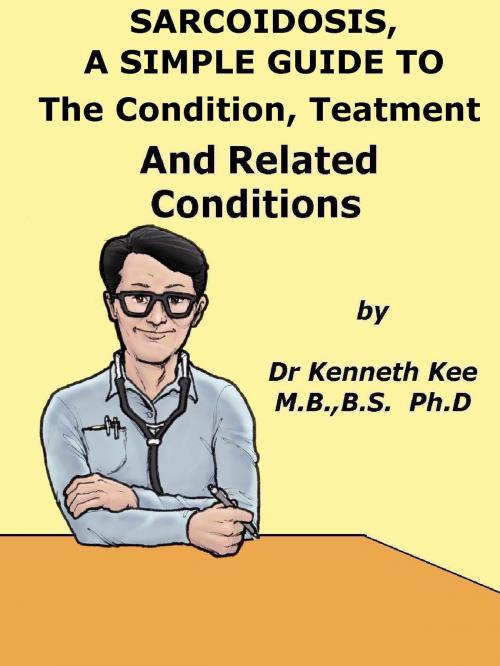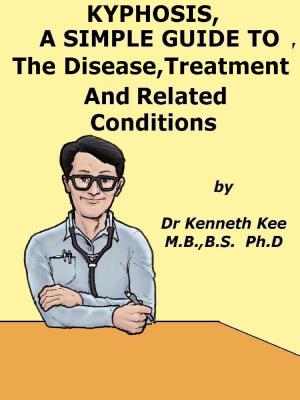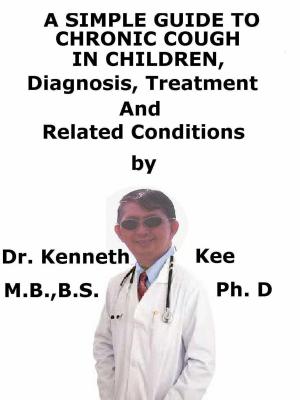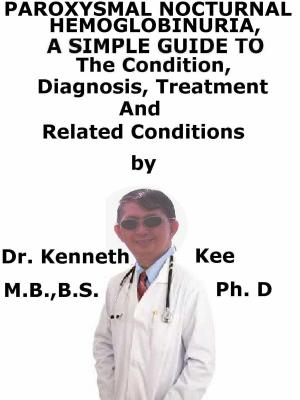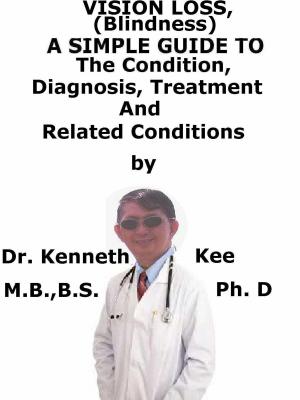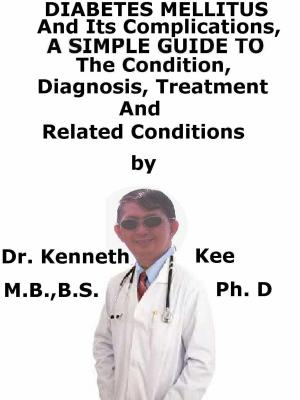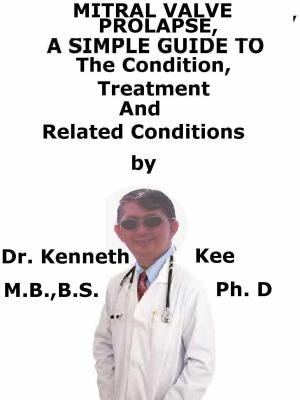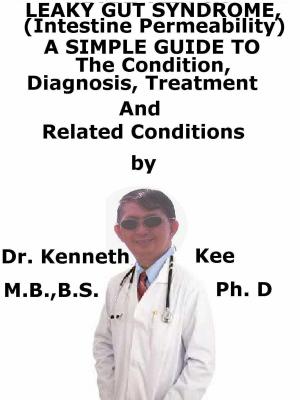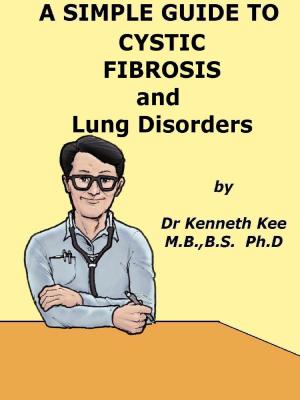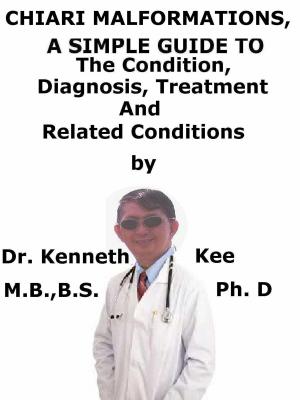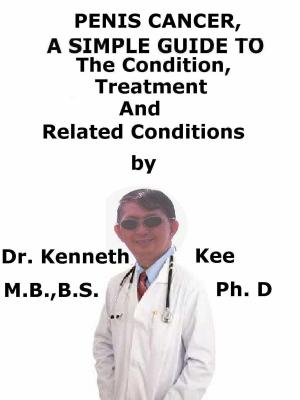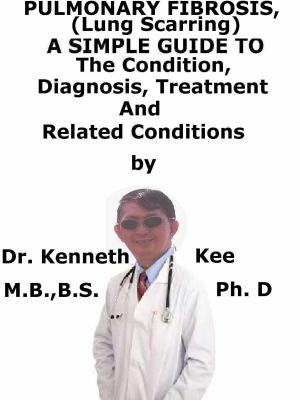Sarcoidosis, A Simple Guide To The Condition, Treatment And Related Diseases
Nonfiction, Health & Well Being, Medical, Medical Science, Immunology, Health, Ailments & Diseases, Immune System| Author: | Kenneth Kee | ISBN: | 9781310087462 |
| Publisher: | Kenneth Kee | Publication: | December 22, 2014 |
| Imprint: | Smashwords Edition | Language: | English |
| Author: | Kenneth Kee |
| ISBN: | 9781310087462 |
| Publisher: | Kenneth Kee |
| Publication: | December 22, 2014 |
| Imprint: | Smashwords Edition |
| Language: | English |
Sarcoidosis is multisystem inflammatory disease
Incidence peaks in persons aged 25-35 years of age
Inflammation occurs in the lymph nodes, lungs, eyes and organs of the body
Forming non-caseating granulomas which usually resolve spontaneously
Things that may trigger the disease include infections
A person with a family history is likely to develop the condition
Granulomas are clusters of immune cells which affects organs of the body
It most commonly affects the lungs with lymph nodes enlargement mainly
There is chest pain, dry cough and breathlessness
There is also joint pain, fatigue and general weakness
To diagnose this condition, a biopsy of the lung is necessary.
Biopsy is usually done on the enlarged lymph nodes using bronchoscopy
Treatment is usually with corticosteroids therapy.
Immunosuppressive medicines may be necessary
This medicine may need to be taken for 1 to 2 years to improve lung function.
Rarely persons with severe heart or lung damage may need an organ transplant.
-An original poem by Kenneth Kee
Interesting Tips about the Sarcoidosis
A Healthy Lifestyle
-
Take a well Balanced Diet
-
Sarcoidosis symptoms will often get better without treatment.
If the eyes, heart, nervous system, or lungs are affected, corticosteroid medicine is usually prescribed. This medicine may need to be taken for 1 to 2 years.
Medicines that suppress the immune system (immunosuppressive medicines) are sometimes also needed.
In rare cases, some persons with very severe heart or lung damage (end-stage disease) may need an organ transplant.
Treatment for Sarcoidosis also depends on the stage:
a. Stage 0 patients do not need treatment
b. Stage 1 patients should never be treated unless there is lung function impairment
c. Stage 2 patients should be treated if pulmonary function is impaired or chest x rays reveal extensive involvement.
Observation of the condition for 3 to 6 months and treat with steroids if condition becomes worse
d. Stage 3 patients should be treated if the pulmonary function is affected.
Corticosteroids are prescribed more freely in these patients
Corticosteroids will suppress active lesions and are particularly indicated for extra thoracic disease in a dose of 40mg to 60mg prednisolone dosage per day for one year then slowly tapered off.
Corticosteroids also reduce the formation of fibrosis in the lungs
Local steroids are required for eye disease but systemic steroids are necessary for posterior uveitis.
- Keep bones and body strong
Bone marrow produces our blood
Eat foods rich in calcium like yogurt, cheese, milk, and dark green vegetables.
Eat foods rich in Vitamin D, like eggs, fatty fish, cereal, and fortified milk.
Eat food rich in Vitamins B and C such as green vegetables and fruits
Zinc and other minerals are important to the body
- Get enough rest and Sleep
Avoid stress and tension
- Exercise and stay active.
It is best to do weight-bearing exercise such as walking, jogging, stair climbing, dancing, or lifting weights for 2½ hours a week.
One way to do this is to be active 30 minutes a day at least 5 days a week.
Begin slowly especially if a person has not been active.
- Do not drink more than 2 alcohol drinks a day for a man or 1 alcohol drink a day for a woman.
Alcohol use also increases the chance of falling and breaking a bone.
Alcohol can affect the neurons and brain cells.
- Stop or do not begin smoking.
It also interferes with blood supply and healing.
Chapter 1
Sarcoidosis
Sarcoidosis is a disease characterized by the formation of non-caseating granulomas in a variety of tissues which usually resolve spontaneously.
Sarcoidosis is a disease in which inflammation occurs in the lymph nodes, lungs, liver, eyes, skin, or other tissues.
TABLE OF CONTENT
Introduction
Chapter 1 Sarcoidosis
Chapter 2 More Fact about Sarcoidosis
Chapter 3 Treatment of Sarcoidosis
Chapter 4 Amyloidosis
Chapter 5 Lung Cancer
Chapter 6 Lymphoma
Chapter 7 Pemphigus Vulgaris
Sarcoidosis is multisystem inflammatory disease
Incidence peaks in persons aged 25-35 years of age
Inflammation occurs in the lymph nodes, lungs, eyes and organs of the body
Forming non-caseating granulomas which usually resolve spontaneously
Things that may trigger the disease include infections
A person with a family history is likely to develop the condition
Granulomas are clusters of immune cells which affects organs of the body
It most commonly affects the lungs with lymph nodes enlargement mainly
There is chest pain, dry cough and breathlessness
There is also joint pain, fatigue and general weakness
To diagnose this condition, a biopsy of the lung is necessary.
Biopsy is usually done on the enlarged lymph nodes using bronchoscopy
Treatment is usually with corticosteroids therapy.
Immunosuppressive medicines may be necessary
This medicine may need to be taken for 1 to 2 years to improve lung function.
Rarely persons with severe heart or lung damage may need an organ transplant.
-An original poem by Kenneth Kee
Interesting Tips about the Sarcoidosis
A Healthy Lifestyle
-
Take a well Balanced Diet
-
Sarcoidosis symptoms will often get better without treatment.
If the eyes, heart, nervous system, or lungs are affected, corticosteroid medicine is usually prescribed. This medicine may need to be taken for 1 to 2 years.
Medicines that suppress the immune system (immunosuppressive medicines) are sometimes also needed.
In rare cases, some persons with very severe heart or lung damage (end-stage disease) may need an organ transplant.
Treatment for Sarcoidosis also depends on the stage:
a. Stage 0 patients do not need treatment
b. Stage 1 patients should never be treated unless there is lung function impairment
c. Stage 2 patients should be treated if pulmonary function is impaired or chest x rays reveal extensive involvement.
Observation of the condition for 3 to 6 months and treat with steroids if condition becomes worse
d. Stage 3 patients should be treated if the pulmonary function is affected.
Corticosteroids are prescribed more freely in these patients
Corticosteroids will suppress active lesions and are particularly indicated for extra thoracic disease in a dose of 40mg to 60mg prednisolone dosage per day for one year then slowly tapered off.
Corticosteroids also reduce the formation of fibrosis in the lungs
Local steroids are required for eye disease but systemic steroids are necessary for posterior uveitis.
- Keep bones and body strong
Bone marrow produces our blood
Eat foods rich in calcium like yogurt, cheese, milk, and dark green vegetables.
Eat foods rich in Vitamin D, like eggs, fatty fish, cereal, and fortified milk.
Eat food rich in Vitamins B and C such as green vegetables and fruits
Zinc and other minerals are important to the body
- Get enough rest and Sleep
Avoid stress and tension
- Exercise and stay active.
It is best to do weight-bearing exercise such as walking, jogging, stair climbing, dancing, or lifting weights for 2½ hours a week.
One way to do this is to be active 30 minutes a day at least 5 days a week.
Begin slowly especially if a person has not been active.
- Do not drink more than 2 alcohol drinks a day for a man or 1 alcohol drink a day for a woman.
Alcohol use also increases the chance of falling and breaking a bone.
Alcohol can affect the neurons and brain cells.
- Stop or do not begin smoking.
It also interferes with blood supply and healing.
Chapter 1
Sarcoidosis
Sarcoidosis is a disease characterized by the formation of non-caseating granulomas in a variety of tissues which usually resolve spontaneously.
Sarcoidosis is a disease in which inflammation occurs in the lymph nodes, lungs, liver, eyes, skin, or other tissues.
TABLE OF CONTENT
Introduction
Chapter 1 Sarcoidosis
Chapter 2 More Fact about Sarcoidosis
Chapter 3 Treatment of Sarcoidosis
Chapter 4 Amyloidosis
Chapter 5 Lung Cancer
Chapter 6 Lymphoma
Chapter 7 Pemphigus Vulgaris
